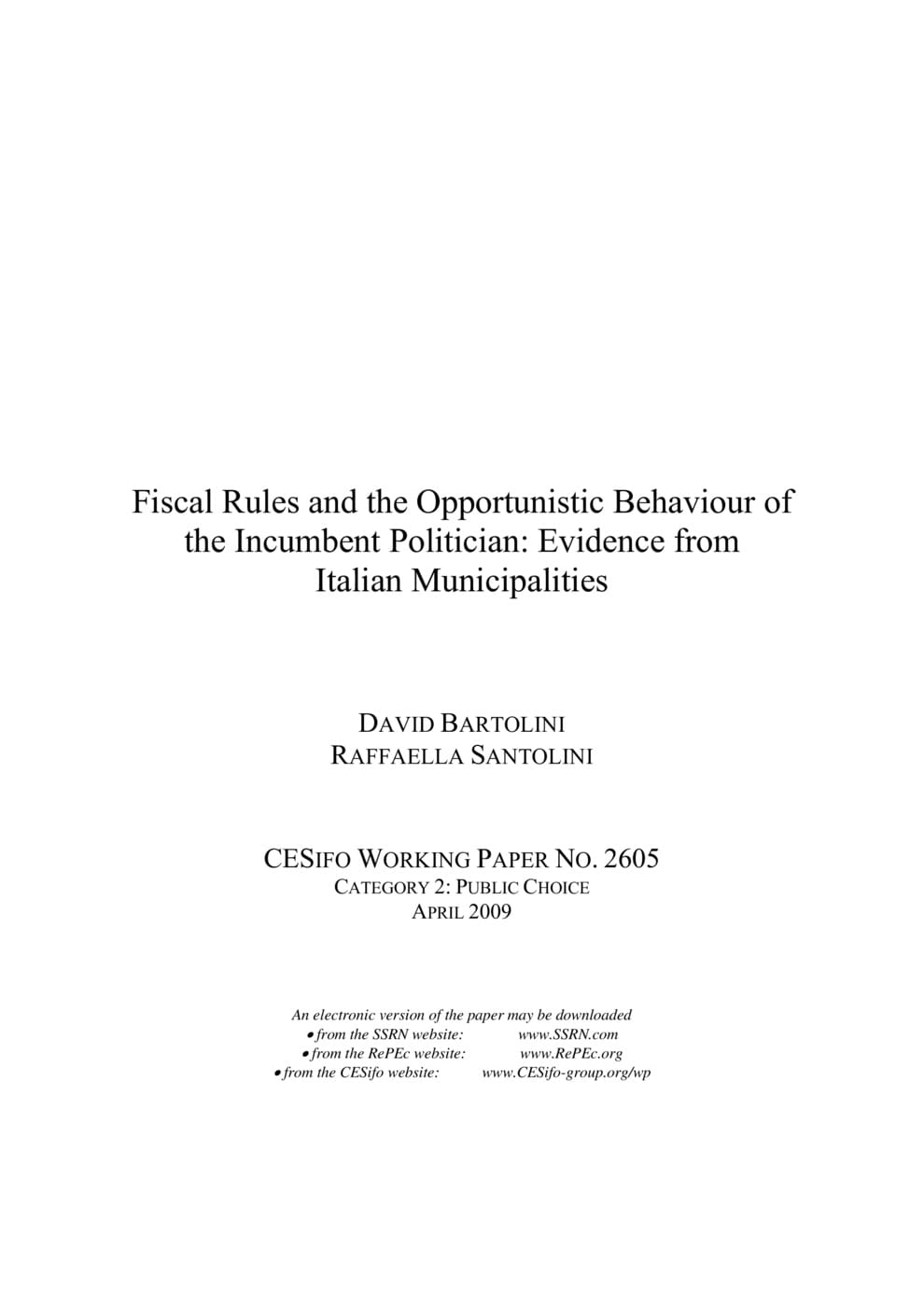Fiscal Rules and the Opportunistic Behaviour of the Incumbent Politician: Evidence from Italian Municipalities
CESifo, Munich, 2009
CESifo Working Paper No. 2605

Previous studies on electoral competition show that fiscal variables are manipulated by incumbent politicians in order to be re-elected. This phenomenon has been addressed by the literature on electoral budget cycle and, in a decentralised economy, by the literature on yardstick competition. Our objective is to consider the effect of the introduction of a fiscal rule on the opportunistic behaviour of incumbent politicians. We conduct a panel data analysis on the current expenditures of 246 Italian municipalities. The introduction of the domestic stability pact (DSP) seems to change the electoral cycle, by increasing the magnitude of the expenditures during pre-electoral periods. Moreover, our results show that municipalities affected by the DSP are more sensitive to changes in neighbouring jurisdictions’ fiscal policies, during pre-electoral periods. We conclude that the introduction of the DSP, besides significantly reducing the level of local public spending, strengthens the opportunistic behaviour of incumbent politicians in pre-electoral years.
Public Choice